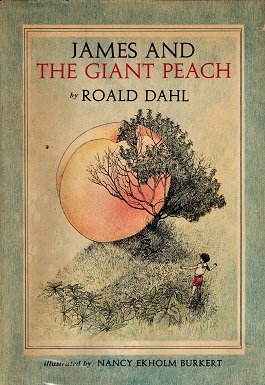Vidiadhar Surajprasad Naipaul
Explore the comprehensive timeline of Vidiadhar Surajprasad Naipaul, a renowned British author of Indo-Trinidadian descent. This timeline covers key events in Naipaul's life, from his birth in 1932 in Trinidad, his education at Oxford University, his illustrious writing career, including notable works like 'A House for Mr Biswas' and 'In a Free State', leading up to his Nobel Prize in Literature in 2001, and his impactful legacy following his passing in 2018.
Birth of V.S. Naipaul
Vidiadhar Surajprasad Naipaul, known as V.S. Naipaul, was born on August 17, 1932, in Chaguanas, Trinidad and Tobago. Naipaul was the second child of his father, Seepersad Naipaul, who was an aspiring writer and worked as a journalist. The family moved to Port of Spain when he was six years old. Naipaul's upbringing in the multi-ethnic society of Trinidad would later influence his literary works.
V.S. Naipaul Moves to England
In 1950, V.S. Naipaul moved from Trinidad to England after winning a Trinidad Government scholarship to study at University College, Oxford. This move marked the beginning of his break from his native land and his life-long journey as an expatriate writer. His experiences in England would later shape his perspectives and a great deal of his literary works. Naipaul's time at Oxford was challenging as he dealt with homesickness and a sense of alienation.
Publication of "A Way in the World"
In 1994, V.S. Naipaul published "A Way in the World," a work that blends elements of fiction, memoir, and historical narrative. The book, which defies conventional categorization, reflects on themes of identity and colonial history while weaving together stories that span continents and centuries. It was noted for its innovative structure and profound insights into the human condition, and it received critical acclaim for its ambitious exploration of the world's interconnectedness.
Publication of "A House for Mr Biswas"
In 1961, V.S. Naipaul's acclaimed novel "A House for Mr Biswas" was published. The novel is considered one of Naipaul's masterpieces and is based on the life of his father, exploring themes of post-colonial identity, displacement, and the struggle for personal independence. Set in Trinidad, the story follows the life of Mohun Biswas and his quest to own his own house. The book was well-received for its humor, insightful commentary, and deep empathy.
Naipaul Awarded the Booker Prize
In 1971, V.S. Naipaul was awarded the Booker Prize for his novel "In a Free State," a complex and innovative work that deals with themes of freedom and displacement. The book is comprised of a framing narrative and three short stories, each examining transitional moments in the lives of individuals and cultures in post-colonial countries. This prestigious award significantly enhanced Naipaul's reputation as a leading writer of contemporary English literature.
Knighted by Queen Elizabeth II
V.S. Naipaul was knighted by Queen Elizabeth II in the 1990 New Year's Honours list. This honor recognized his services to literature, as he had established himself as one of the most compelling and significant writers in the English language. The knighthood acknowledged his contribution to postcolonial literature and his status as a leading figure in contemporary literary circles, with works that have explored the complexities of identity, displacement, and human relationships.
Awarded the Nobel Prize in Literature
On October 11, 2001, V.S. Naipaul was awarded the Nobel Prize in Literature. The Nobel Committee praised Naipaul for combining analytical narrative with incorruptible scrutiny in works that compel us to see the presence of suppressed histories. Naipaul's expansive body of work traversed topics of cultural identity, universal themes of personal and cultural displacement, and the experience of expatriates. This accolade confirmed his role as a significant literary figure.
Naipaul's Controversial Comments on Female Writers
In July 2011, V.S. Naipaul sparked controversy with comments he made regarding female writers. Naipaul claimed that women writers are "unequal" to him, suggesting that he could easily determine the difference between writing by a woman and a piece by a male writer. These comments were widely criticized and debated within literary communities, highlighting issues of gender within the literary field and bringing Naipaul's views on gender and literature into the spotlight.
Publication of Naipaul's Biography "The World Is What It Is"
The authorized biography of V.S. Naipaul, titled "The World Is What It Is," was published in 2008 but gained notable attention in 2015. Written by Patrick French, the biography is an unflinchingly honest account of Naipaul's life, exploring both his literary genius and his complex personal life. The book draws on exclusive access to Naipaul's estate, letters, and his personal recollections, and provides a comprehensive view of his journey as a writer and as a person.
Death of V.S. Naipaul
V.S. Naipaul passed away on August 11, 2018, in London, England, at the age of 85. Naipaul left behind a prolific body of work that explored themes of postcolonialism, identity, and exile. He was survived by his wife, Lady Nadira Naipaul. His death marked the end of an era for a literary icon whose works have been translated into more than 30 languages. Tributes poured in from around the world, honoring his contribution to literature and his complex, multi-faceted legacy.
Frequently asked questions about Vidiadhar Surajprasad Naipaul
Discover commonly asked questions regarding Vidiadhar Surajprasad Naipaul. If there are any questions we may have overlooked, please let us know.
What is V.S. Naipaul known for in his literary career?
When was V.S. Naipaul born?
Which award did V.S. Naipaul receive in 2001?
When did V.S. Naipaul pass away?
Related timelines
More timelines connected to Vidiadhar Surajprasad Naipaul







